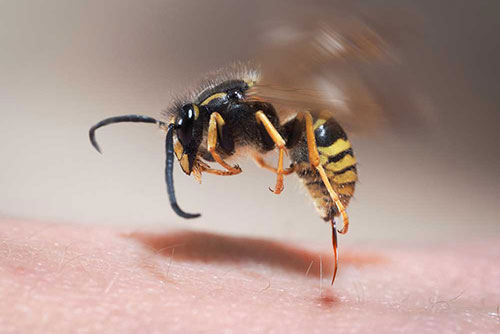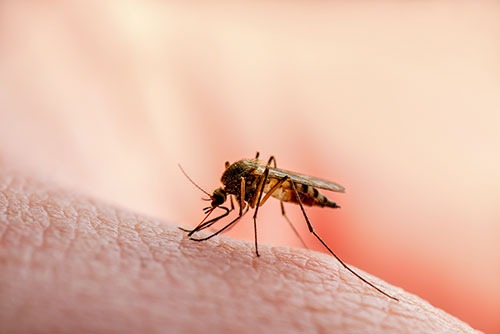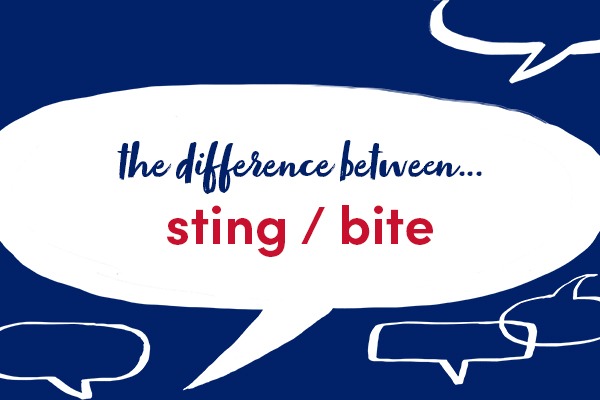This week we are looking at two words which are sometimes confused: sting and bite.
sting

Sting is usually a verb. Its past tense and past participle is stung.
If a creature such as a bee, wasp, or scorpion stings you, it pricks your skin and pushes poison into your body. Nettles can also sting you.
Bees do not normally sting without being provoked.
Felipe had been stung by a wasp.
Sting can also be used as a noun.
Remove the bee sting with tweezers.
bite

Don’t say that a mosquito or ant `stings’ you. You say that it bites you. The past tense and past participle of bite are bit and bitten. You also say that animals or reptiles bite you.
A mosquito landed on my arm and bit me.
An ant had bitten her on the foot.
In Britain you are very unlikely to get bitten by a snake.
Bite can also be used as a noun.
Any dog bite, no matter how small, needs immediate medical attention.
Find out more in our English Usage article.
This blogpost is based on Collins COBUILD English Usage, written for learners of English. For more examples of English usage points, please visit: https://grammar.collinsdictionary.com/english-usage.
All opinions expressed on this blog are those of the individual writers, and do not necessarily reflect the opinions or policies of Collins, or its parent company, HarperCollins.




collins_dictionary_official
The home of living language. #wotd #wordlovers #collinsdictionary
Read our word of the week definitions and blog posts: